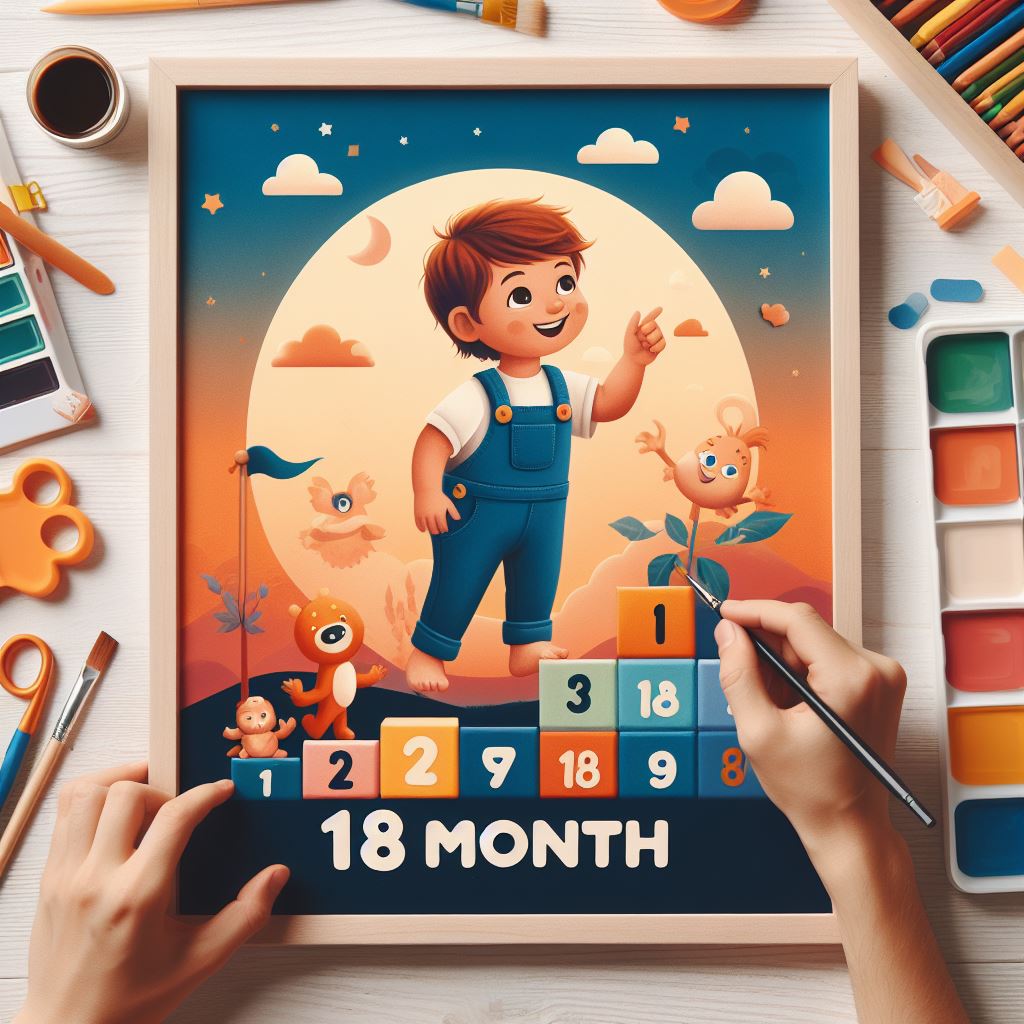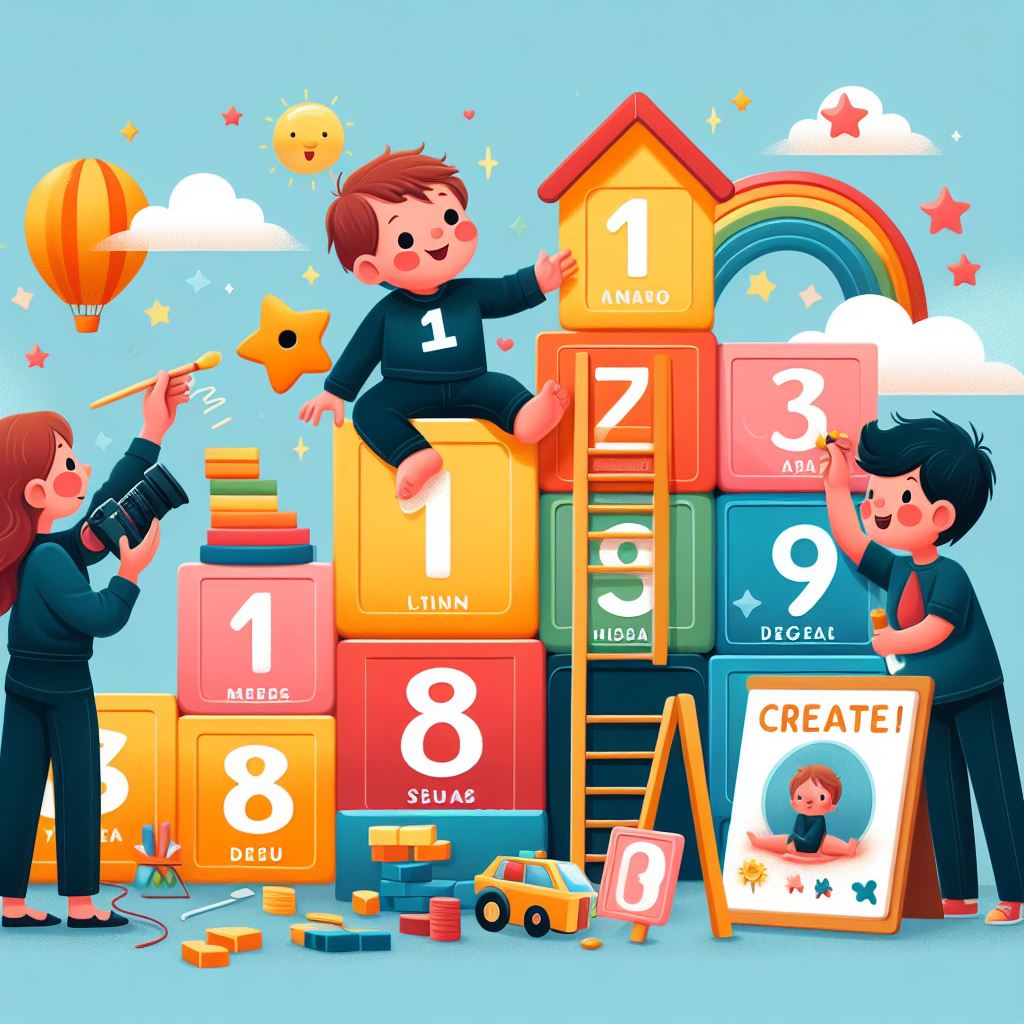Your basket is currently empty!

Your child is Toddler at 18 months old
Physical development at 18 months old
At 18 months, your child is likely navigating her newfound mobility with confidence, displaying steady walking skills and an adventurous spirit. She enjoys exploring by climbing on furniture and scrambling over sofa cushions. Although she can climb up stairs with some assistance, she often prefers to crawl up and come down backward, a safer approach that you should encourage.
In addition to mastering walking, she might discover the joys of wheels, taking pleasure in riding a trike or other ride-on toy. If you demonstrate kicking a ball, she’ll enthusiastically try it herself, even if her aim is not yet precise.
Her dexterity has improved significantly, allowing her to make broad marks on paper with crayons or pens and engage in finer movements, such as finger painting. Holding her own cup and drinking from it without spills are also part of her growing independence. Cheers to these developmental milestones!
At this age, the key focus should be on keeping your child active and engaged. When heading out for activities that don’t involve extensive walking, consider leaving the stroller at home. Walking not only helps burn energy and strengthen muscles but also allows her to explore the world at her own pace.
On rainy days when outdoor activities are limited, you can create a fun and active indoor experience. Play some music and encourage her to dance around the kitchen with you. She’ll likely enjoy the lively movement and rhythm. Just be cautious not to let her catch you laughing at her adorable dance moves, which might involve feet firmly planted on the floor while she wiggles her bottom.
Cognitive Development at 18 months old
By 18 months, your child is developing a distinct sense of self. She not only recognizes her own reflection but understands that she is an individual separate from you. However, despite asserting her independence, she remains deeply attached and seeks comfort in your presence.
Prepare for the exercise of free will as she navigates this newfound understanding. Separation anxiety may peak around 14-18 months, leading to moments of distress when you leave her, whether at nursery or even just momentarily in another room. While it can be challenging, this phase is temporary, and a positive approach to goodbyes is essential.
Avoid sneaking away, as it may intensify clinginess. Instead, say a cheerful goodbye, assure her of your return, offer a kiss, and leave. If settling is challenging, consider allowing her to bring a comfort toy or an item with your scent to create a sense of closeness.
Despite the ups and downs, the toddler years bring moments of joy and cooperation. Your child will strive to please you, engaging in imaginative play like making pretend tea and offering cuddles to comfort you. Her ability to follow more complex instructions reflects cognitive growth, and celebrating her achievements with praise enhances her sense of accomplishment.


Leave a Reply